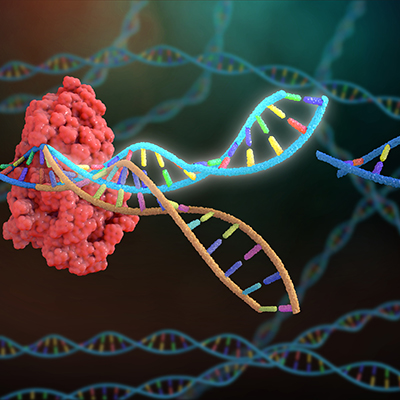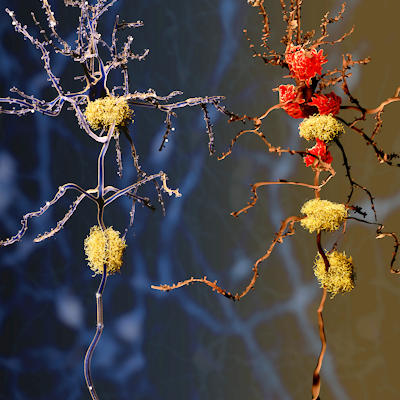 CRISPR pioneer finds new genome-editing systems in analysis of viral genomes
CRISPR pioneer finds new genome-editing systems in analysis of viral genomes
The discovery of CRISPR-Cas enzymes in bacteriophages has revealed a new source of potential tools for editing the genome. Read More
 Researchers expand CRISPR-based genome engineering toolbox
Researchers expand CRISPR-based genome engineering toolbox
North Carolina State University researchers have expanded the CRISPR-based gene editing toolbox with new DNA integrases that have potential applications for biotechnology and therapeutics. Read More
 CRISPR-Cas9 gene editing links RNA-binding protein to immunotherapy resistance
CRISPR-Cas9 gene editing links RNA-binding protein to immunotherapy resistance
Using CRISPR-Cas9 gene editing, Swiss researchers have provided evidence that expression of an RNA-binding protein helps tumors to evade the immune system. Read More
 Maps of genetic subclones in tumors point to new way to treat cancers
Maps of genetic subclones in tumors point to new way to treat cancers
Researchers have combined whole-genome sequencing with other techniques to generate detailed quantitative maps of genetic subclones in tumors, which they contend provide a complete view of cancer that has not been previously possible. Read More
 CRISPR-based method finds chromosomal deletion linked to cancer outcomes
CRISPR-based method finds chromosomal deletion linked to cancer outcomes
Memorial Sloan Kettering Cancer Center researchers have developed a new CRISPR-based method for studying large-scale genetic changes that frequently happen in cancer, identifying deletions that mediate immune evasion and metastasis. Read More
 DNA barcoding shows how breast cancer cells evade the immune system
DNA barcoding shows how breast cancer cells evade the immune system
Using DNA barcodes, scientists at Australia’s Garvan Institute of Medical Research have revealed how cancer cells can evade the immune system and render immunotherapies ineffective. Read More
 Gene overexpression may protect against Alzheimer’s disease: study
Gene overexpression may protect against Alzheimer’s disease: study
Scientists at the University of Colorado Anschutz Medical Campus have discovered the overexpression of a gene tied to cell division and the structure and function of neurons may prevent and protect against cognitive decline in both mice and humans with Alzheimer’s disease. Read More
 Procedure finds large deletions, other anomalies in 'on-target' CRISPR-Cas9 editing
Procedure finds large deletions, other anomalies in 'on-target' CRISPR-Cas9 editing
Single-molecule real-time sequencing has enabled Rice University researchers to find and quantify unintended genetic changes that can occur when CRISPR-Cas9 makes on-target DNA cuts. Read More
 Identification of genetic drivers of radiotherapy sensitivity opens door to treatment optimization
Identification of genetic drivers of radiotherapy sensitivity opens door to treatment optimization
Using in silico and experimental profiling platforms, researchers at Northwestern Medicine have identified genetic biomarkers of radiation sensitivity, pointing to opportunities to use genomics to guide radiotherapy treatment for cancer patients. Read More
 CRISPR interference screening reveals mitochondrial door linked to Alzheimer's, cancer
CRISPR interference screening reveals mitochondrial door linked to Alzheimer's, cancer
Using CRISPR interference screening, scientists at the Whitehead Institute have uncovered the gene that serves as a doorway to the mitochondrial membrane, providing a molecular basis for understanding its role in cancer and Alzheimer's disease Read More
Conferences
Science Briefs
Member Rewards
Earn points for contributing to market research. Redeem your points for merchandise, travel, or even to help your favorite charity.
Research Topics
Interact with an engaged, global community of your peers who come together to discuss their work and opportunities.
Connect
Tweets by @ScienceBoard






